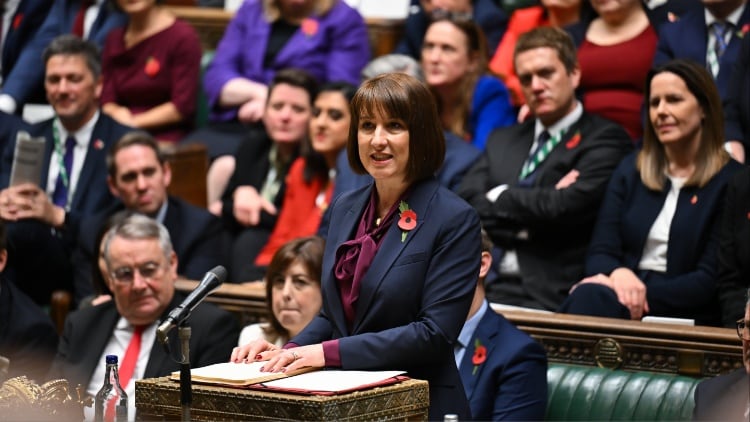Chancellor of the Exchequer Rachel Reeves had previously said there would be a reduction in support for non-domestic business rates in her Budget in October 2024 from 75% to 40%.
Although many bemoaned the move and the critical effects it will have on the sector when coming into force on 1 April 2025, Reeves refused to budge on the matter in parliament on Wednesday 26 March.
The only positive for the sector was at the start when Reeves said the Spring Statement “does not contain any further tax increases”.
Alex Probyn, practice leader of property tax (Europe and Asia-Pacific) at Ryan, which used to be Altus group, said all the high street had been left with was a promise of “jam tomorrow” and said: “With around 27,000 high street jobs shed or at risk in the first three months of the year, the Chancellor missed a golden opportunity not to reinstate the 75% business rates discount until the wider reforms come into effect in 2026.
Robbing Peter to pay Paul
“The Chancellor will save £1.03bn through the cut that comes into effect in less than a week and, from 2026, she will then be ‘robbing Peter to pay Paul’ by transferring the burden for permanently lower tax rates for the high street onto the very largest ratepayers to save a further £1.4bn.”
Ryan added it is estimated councils across England will raise £27.8bn in business rates income for the new 2025/26 financial year, up 5.7% from the £26.3bn during 2024/25, with two thirds of that increase coming from the cut in the discount for retail, leisure and hospitality firms.
In October last year, Reeves pledged to overhaul the business rates system in 2026-27.
Reeves said at the time: “From 2026/27, we intend to introduce two permanently lower tax rates for retail, hospitality and leisure properties, which make up the backbone of our high streets across the country.
“It is our intention that it is paid for by a higher multiplier for the most valuable properties. But the previous Government created a cliff edge next year as temporary reliefs end.”
She said at the time she would provide 40% relief on business rates for the retail, hospitality and leisure industry for 2025/26 with a cap of £110,000 per business. Alongside this, the small business tax multiplier will be frozen until April 2026.
£3.4bn additional tax for sector
UKHospitality CEO Kate Nichols spoke on the plight of hospitality at the recent MA Leaders Club meeting last week (Wednesday 19 March), stating the Government needed to act upon the desperate situation.
Nicholls said at the time: “Everybody knows the headwinds that we’re staring into in April. We’ve got significant challenges coming through as the result of the Budget – NICs, national living wage, business rates changes – particularly impacting on pubs and independent businesses.
“All of that is adding up to £3.4bn of additional tax the sector is going to have to digest when it comes to April.
“While the Government is listening and hearing, they’re not able to act or they’re not feeling that they want to be able to act given the state of the public finances so [it’s] a hugely challenging environment we’re facing into.”
Nicholls was also outspoken on X (was Twitter) on the morning before the Spring Statement took place, as detailed below.
Real estate disputes lawyer Andrew Cammish at Osborne Clarke said of the Spring Statement: “The absence of business rates action from the Government’s announcements will come as a disappointment to many businesses – particularly in light of the vocal lobbying surrounding the increased costs to businesses imposed by the reducing of the rate of relief from 75% to 40% at a time where there have been increased costs to businesses by the changes to the national minimum wage and employer’s national insurance contributions.
“The forthcoming revaluation in 2026 will take on even greater significance for businesses that are keen to reduce the pressure on their bottom line imposed by their business rates liability.”




